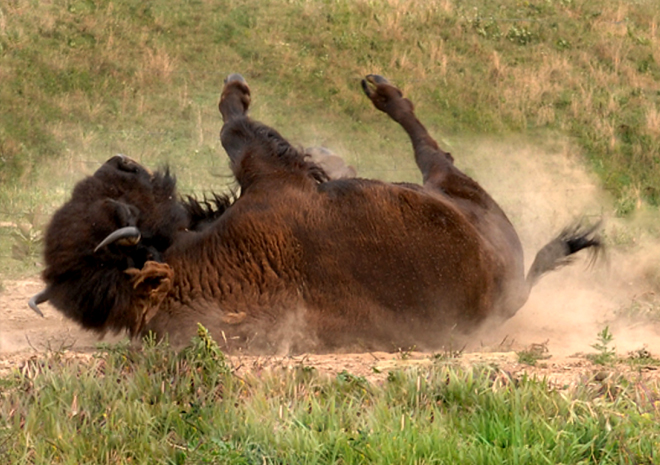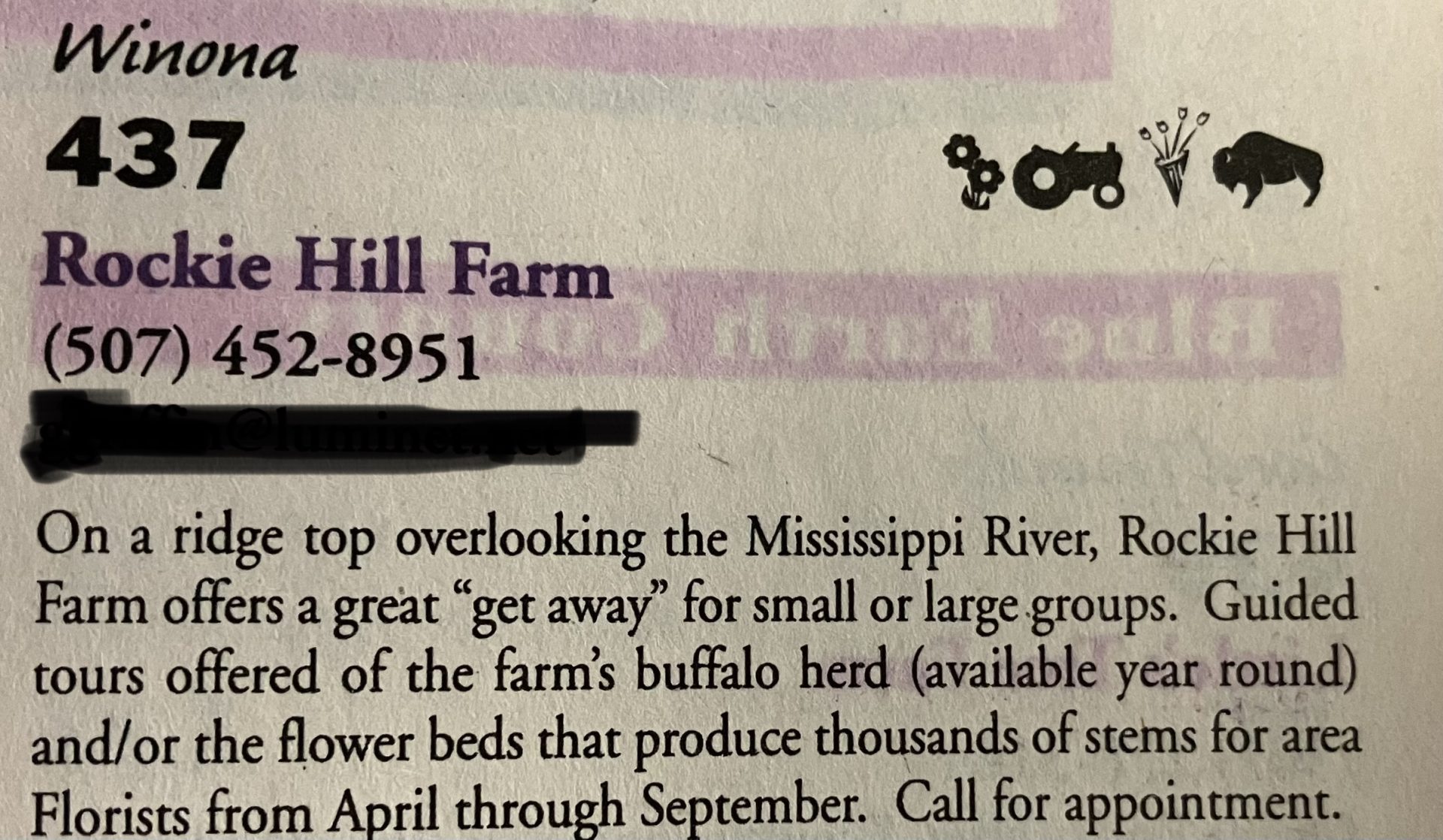The story of how Dave and Gail Griffin became bison ranchers starts with a game of cards, though not one they were playing. They’d purchased the farm in Winona in the early 1990s where they were raising dairy bulls for Dave’s dad while working busy in-town positions. Dave owned an excavating company and one day a cement supplier he worked with convinced him that any contractor with a farm needed some “buffalo." The cement supplier had just won a small bison herd playing a card game in Iowa! Dave bought three and Rockie Hill Bison began.
“Since the day the first three were delivered to the farm, we have never regretted that decision,” Gail and Dave shared. The two of them are the sole operators and their grandson, Spencer, learned the ropes working summers for a decade before joining them in 2020. “None of us have defined specific roles. We all pitch in to get the job done whatever the task might be,” they shared, though Dave and Spencer do most of the fencing, haying, and equipment maintenance while Gail oversees record-keeping, bookkeeping, and sales.
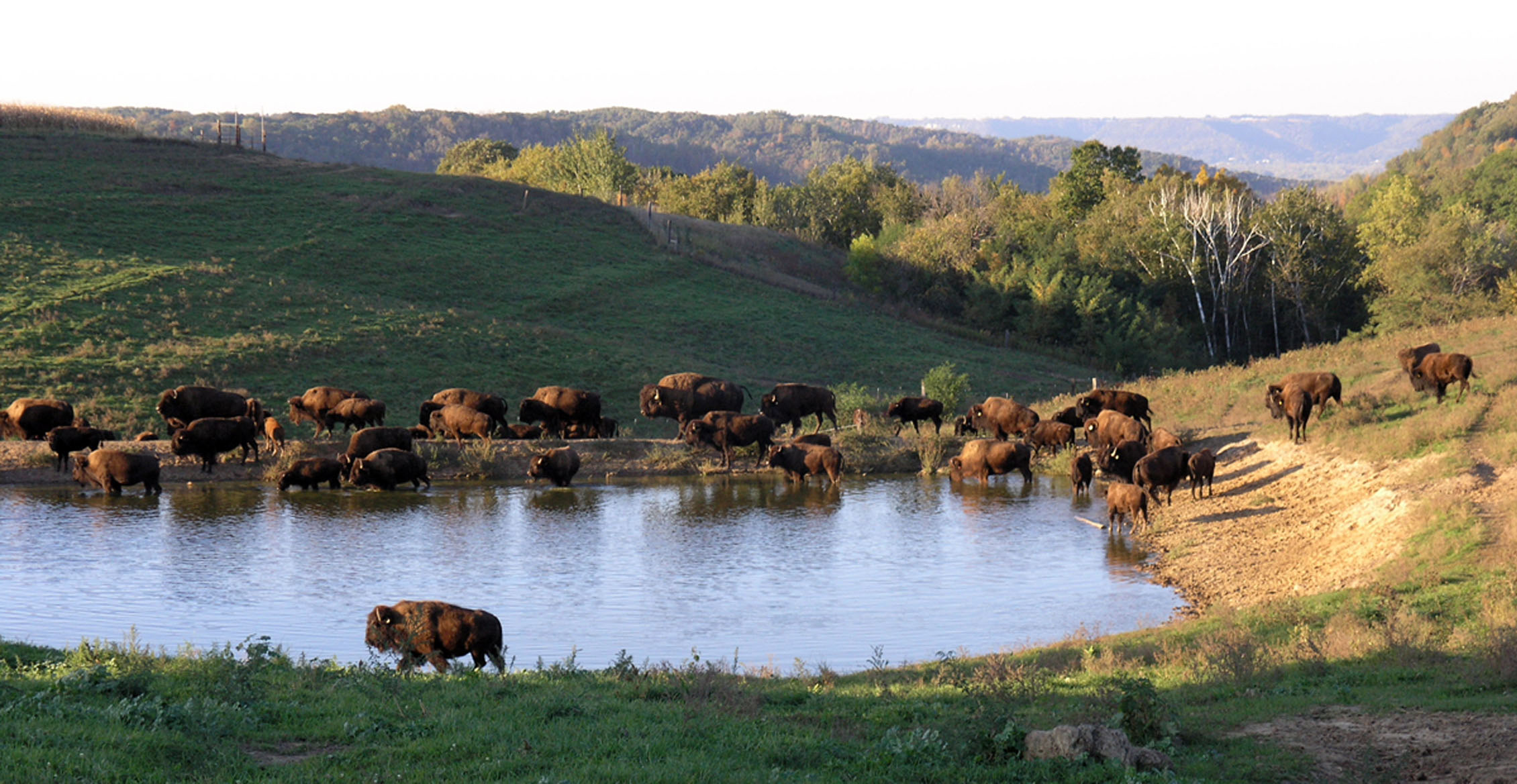
Hooked on bison, Dave and Gail became active back in the 90s in both the state and national bison associations. “All three of us thoroughly enjoy the lifelong friendships that have been formed by being involved in the farm operations and affiliated associations,” said Gail. “Throughout North America, you will find that bison operations openly share our mishaps along with what has successfully worked within our herds. By doing so it helps other producers on what they might give a try.” Gail, as a retired Registered Dietitian, also finds great pleasure in promoting delicious, nutritious bison meat to the Winona area community. They’ve been proud members of Minnesota Grown for 22 years.
Today, Rockie Hill Bison sells breeding stock and bison meat. Known for the high-quality excellent genetic stock, they have been Producer of the Year 12 times in the last 15 years at the Minnesota Bison Association’s annual fall auction. Over the years the herd size has fluctuated pending the pasture conditions. This year, they have 55 adult bison.
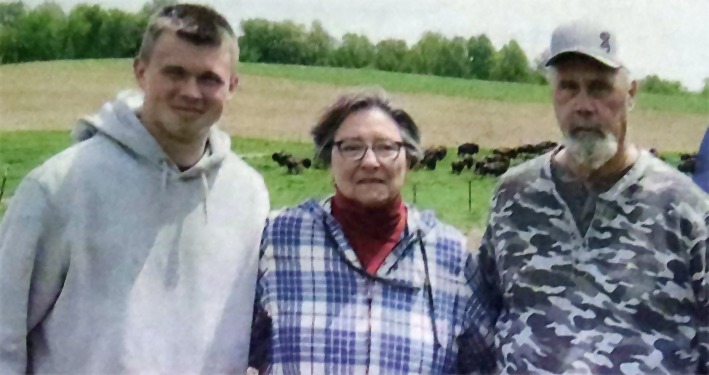
Rockie Hill’s bison are pastured year-round with rotational access to over 110 acres. “Our decision making, and ever-adjusting management plan has been centered on allowing the animal to thrive,” they shared. In 2020, the farm, in partnership with the Xerces Society, NCRS, and FSA, turned over 20 acres of land into a tallgrass prairie, including multiple pollinator plants to support bees and butterflies, no tilling a diverse 57 plant species. The 10-year plan is to turn those acres into productive bison pasture, rather than having marginal land sit in fallow.
To date, the farm does not maintain a website (though you can follow them on Facebook.) Most customers find them through word of mouth and the Minnesota Grown directory. They also have a business management plan that includes limiting the transport of the animals and meat to no more than 80 miles from birth to plate. Processing happens at USDA processing plant just 30 miles from the farm. Retail customers email their orders and arrange to pick up meat at the farm and Gail delivers to local commercial customers.
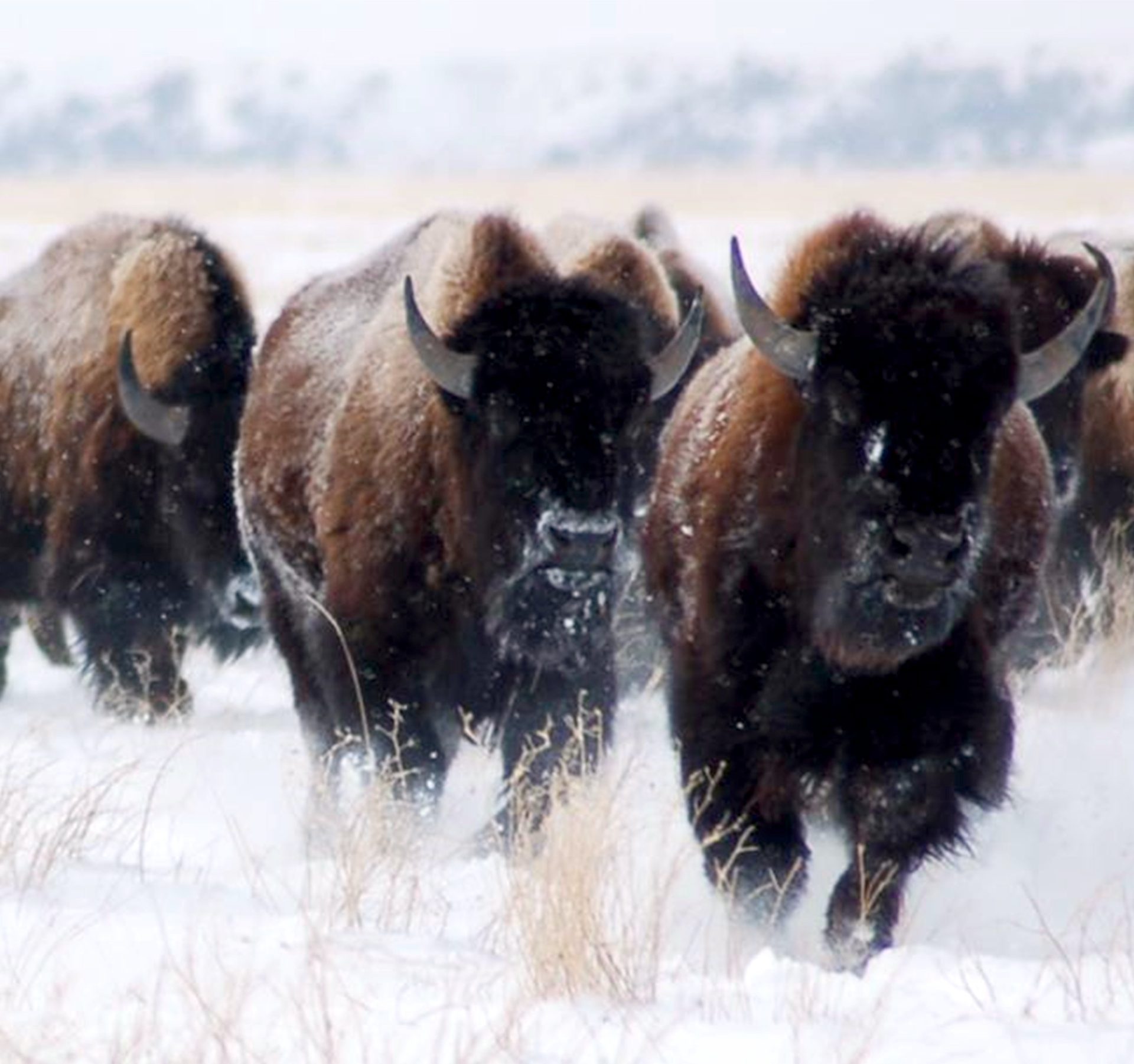
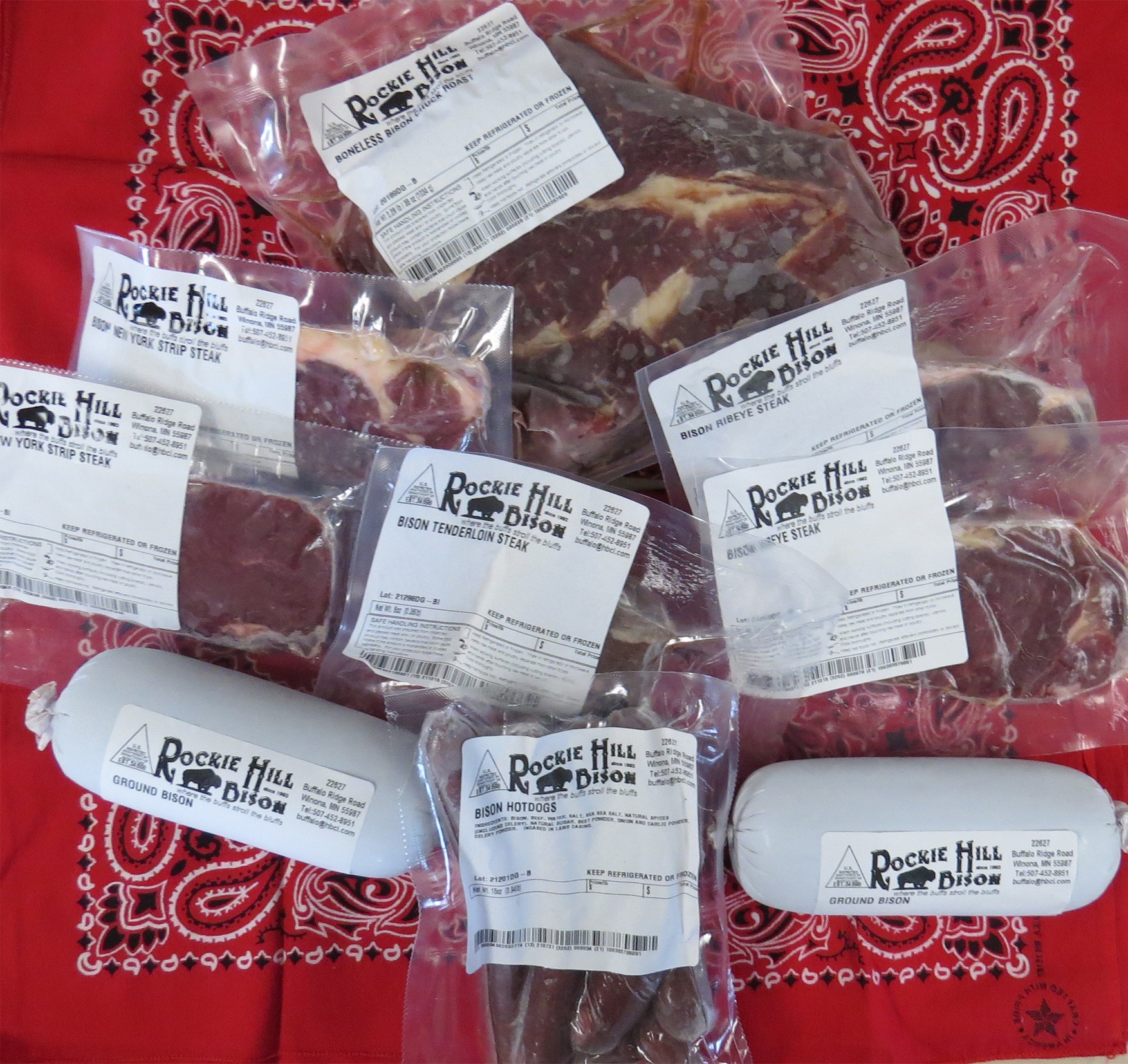
Are you still perplexed by the difference between buffalo and bison? Gail sorted it out for us. “That name came to be when French explorers identified them with oxen, which in French is la buff. That is a misnomer, and their scientific name is bison. While many use the two names interchangeably most producers and all processors call the meat bison. Labeling laws have changed not so long ago when Water Buffalo meat was being brought into the US and labeled just as buffalo. That is when the use of bison became very prevalent. Two totally different meats, nutritional composition, and price ranges.” Good to know!
Find Minnesota Grown bison for your winter comfort meals in the Minnesota Grown Directory.
